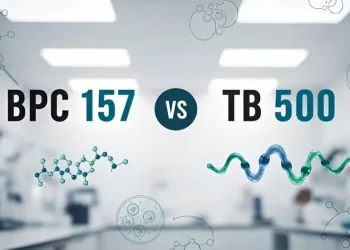The psychology of gift-giving is a fascinating field that explores the motivations, emotions, and social dynamics behind this age-old practice. We exchange gifts for various reasons: to celebrate, show affection, strengthen bonds, or even smooth over ruffled feathers.
But, have you ever stopped to think about the complex psychological processes at play, both for the giver and the receiver?
Why We Give: Unwrapping the Motives
The reasons we give gifts are deeply rooted in our evolutionary history and social norms. Here are a few key psychological theories that offer insights into our gift-giving behaviors.
1. Reciprocity: The Give and Take of Relationships
The principle of reciprocity is hardwired into human behavior. It suggests that when someone does something nice for us, we feel obligated to return the favor. Gift-giving plays a significant role in this social dance.
Think about the last time you received an unexpected gift. Did you feel a surge of warmth and a sense of indebtedness toward the giver? This feeling often motivates us to reciprocate in kind, perpetuating a cycle of giving and receiving that strengthens social bonds. Psychologically, as humans, we’ve been wired this way. Giving back to others also gives a feeling of appreciation and self-worth.
2. Social Bonding: Strengthening the Ties That Bind
Gifts act as tangible expressions of care and affection. They foster a sense of connection and belonging within families, friends, and even workplaces. A thoughtful present conveys the message, “I’m thinking of you,” which can have a profound impact on relationships.
3. Status and Hierarchy: Navigating Social Ladders
Gift-giving can play a role in establishing and maintaining social hierarchies. This is particularly true in professional settings or within certain cultures, where lavish or symbolic gifts might signal power, influence, or the desire to impress.
A real-world example is the tradition of exchanging elaborate gifts among business associates in Japan, a custom deeply rooted in their culture.
The Science of Giving: How Gifting Affects Our Brains
The act of gift-giving triggers a cascade of feel-good chemicals in our brains, leaving us and the recipient feeling happy and more connected. It can even make you feel closer to the person you are giving the gift to.
1. Dopamine: The Anticipation and Reward
Just the thought of giving or receiving a gift can trigger the release of dopamine, a neurotransmitter associated with pleasure, motivation, and reward. This explains the excitement and anticipation we often experience leading up to a gift-giving occasion, such as during the holiday season.
2. Oxytocin: The Bonding Hormone
When we give or receive a meaningful gift, our brains release oxytocin, often called the “love hormone” or the “cuddle hormone.” Oxytocin promotes feelings of trust, empathy, and connection, explaining why gift-giving can strengthen bonds.
If you want to feel happier, give a gift. Oxytocin plays a role in social interactions as outlined by researchers who published their findings in The Physiological Society.
3. Serotonin: The Mood Booster
Gift-giving is often associated with an increase in serotonin, a neurotransmitter that contributes to feelings of well-being and happiness. Acts of kindness, like choosing a thoughtful present for a friend, activate brain regions associated with serotonin release.
Even those who may suffer from depression can experience greater happiness from giving. The simple act of gift-giving can give you that “warm glow” feeling. This is often referred to as the “feel-good rush”.
The Art of Giving: Choosing Gifts that Truly Resonate
To choose a truly meaningful gift, it’s important to look beyond flashy gadgets or trendy items. Thoughtful presents require putting yourself in the recipient’s shoes and understanding their interests, passions, and needs. Think about what might promote happiness for them.
1. Listen and Observe: Picking Up on Cues
Pay attention to hints your loved ones might drop throughout the year. Are they always admiring a particular artist’s work? Have they been talking about trying a new hobby? These clues can guide you toward a gift that genuinely surprises and delights them.
2. Experiences Over Things: Creating Lasting Memories
Sometimes, the most cherished gifts aren’t material possessions. Consider gifting experiences like a weekend getaway, concert tickets, or a cooking class.
Experiences create lasting memories and offer opportunities to connect. These types of gifts can help with mental health and give people something to look forward to.
3. Personalized Touches: Adding a Thoughtful Flair
Adding a personal touch to your gift box can make it even more special. It shows you put extra thought and effort into selecting something unique for them.
This could be something as simple as a handwritten card expressing your feelings, or a personalized item featuring their name or initials. You don’t always have to get this right to elicit the same feelings either. People receive gifts with the same joy even when the gift is not “perfect.”
FAQs about psychology of gift-giving
- What is the hidden psychology of gift-giving?
The hidden psychology revolves around innate human needs – to build relationships, feel appreciated, and affirm social standing. Gifts, often unconsciously, become tools for navigating these complex social dynamics, going beyond the simple act of exchanging objects. - What does gift-giving say about a person?
It’s tricky to draw concrete conclusions. Gift-giving styles can reveal thoughtfulness, generosity, desire to impress, or even a lack of observation depending on the choice and the recipient. It often reflects their personal values, cultural background, and understanding of the relationship dynamics.
For example, some may prioritize practicality and usefulness, others sentimentality or grand gestures. Understanding someone’s personality will often help in finding the right gift. This is why when you’re spending your hard-earned money, it is a good idea to be thoughtful about the gift. - What is the psychology behind excessive gift-giving?This can stem from various places. It could be a way of compensating for something else, be it emotional distance or unresolved guilt.
In other cases, it might reflect an underlying need for validation or a desire to control others through indebtedness. Overspending on gifts, particularly during the holiday season, might indicate a struggle with financial stress or a need to impress. - What is the psychology of gifting?
It boils down to how this simple act taps into fundamental human needs. Gifting provides a tangible means of communication – of affection, appreciation, or obligation.
It influences how we perceive each other, build relationships, and maintain social structures, highlighting its importance beyond the surface level of material exchange. Understanding these aspects allows us to appreciate its profound influence on human interactions and why a gift that feels good to give has such a lasting impact on the recipient.
The psychology of gift-giving reveals a lot about our nature as social creatures. It goes beyond material exchange; it’s about social connection.
Understanding the motivations behind it, whether it’s reciprocation or social bonding, provides insights into this aspect of human behavior. Remember, thoughtful presents show you listen. When it comes to the psychology of gift-giving, the most meaningful ones are those that come from the heart.
Also Read This : Exploring the Dental Health and Body Health Connection – A Holistic approach
Disclaimer:
This article provides general information on the psychology behind gift-giving for educational purposes. It is not a substitute for professional psychological advice, diagnosis, or treatment. Always consult with a qualified mental health professional before drawing conclusions about behavior or emotions based on the concepts discussed here. Well Health Organic does not take responsibility for the accuracy, completeness, or outcomes of the information provided. We do not guarantee the effectiveness of any theories, products, or information mentioned in this article, nor do we recommend any specific products. The insights shared about gift-giving are for knowledge only, and we are not responsible for any issues that may arise from their interpretation or application.














